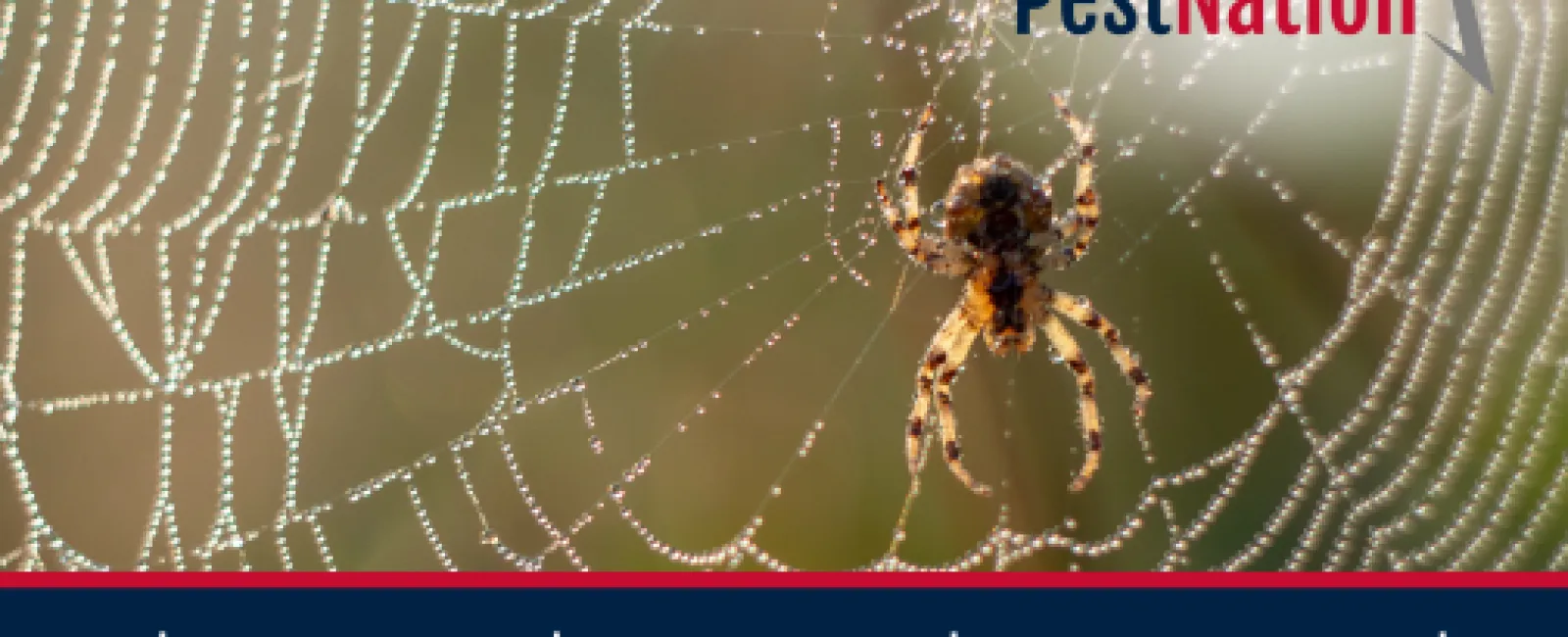If you've noticed an uptick in spider sightings inside your home during July, you're not alone. Homeowners across Atlanta, Charlotte, and Charleston frequently report more indoor spider activity during the peak summer months—and it's not just a coincidence. Spiders are more active in warm weather, and several environmental factors during mid-summer can drive them indoors. Despite their beneficial role in controlling other pests, having spiders set up residence in your home can be unsettling, especially when venomous species are involved.
At PestNation, we understand that seeing spiders indoors can trigger concern for families, especially in households with children or pets. While many spiders are harmless, their presence is often a signal of deeper pest issues or environmental conditions that need attention. Our goal is to help homeowners understand why spiders are coming indoors during this time of year, what attracts them, and how to prevent them through PestNation pest inspections, quarterly services, and expert interior and exterior pest treatments tailored to your local region.
Why July Is Prime Time for Spider Activity
1. Rising Temperatures Push Spiders Indoors
Spiders are ectothermic (cold-blooded), meaning their activity levels are closely tied to the temperature of their environment. In cities like Atlanta, Charlotte, and Charleston, July often brings extreme heat—with outdoor temperatures soaring into the 90s or higher. For many spider species, these conditions can dry out their natural outdoor habitats and limit available shelter.
As the ground becomes too hot and vegetation dries up, spiders will seek cooler, more humid environments—which often leads them into your home. Basements, bathrooms, laundry rooms, and crawl spaces offer exactly what spiders need: stable temperatures, moisture, and access to food.
2. Food Sources Are Plentiful Indoors
The summer surge in insect activity means that spiders' primary food sources—flies, ants, mosquitoes, and other bugs—are also more abundant. Unfortunately, many of these insects make their way indoors, especially during the summer months. Spiders follow.
If your home has an existing pest problem, it's more likely to attract spiders looking for a steady food supply. In this sense, spider activity often signals another infestation that may not be immediately visible, but is detectable during a PestNation pest inspection. Whether it's fruit flies around your kitchen or ants trailing through the pantry, spiders tend to congregate where there's prey.
The Most Common Spiders Found Indoors in the Southeast
Homeowners in Charlotte, Atlanta, and Charleston might see several types of spiders indoors during July. Each species behaves differently and requires different treatment methods:
-
American House Spider: Often found in corners and basements, these harmless web-spinners prefer dark, undisturbed spaces.
-
Wolf Spider: Large, fast-moving hunters that don't build webs. They often enter through gaps in doors or foundations.
-
Jumping Spider: Small and active, they usually enter in search of insects near windows and doors.
-
Brown Recluse (less common but dangerous): Identified by a violin-shaped marking, they prefer quiet areas like attics, closets, and crawl spaces.
-
Black Widow: Recognizable by the red hourglass on their abdomen, they prefer garages, sheds, and crawl spaces.
While not all spiders are dangerous, accurate identification is important—especially in cases of suspected venomous species. PestNation pest inspections are essential for differentiating between harmless house spiders and potentially harmful invaders.
How Spiders Get Inside Your Home
Understanding how spiders enter your home is the first step in preventing infestations. Some of the most common entry points include:
-
Gaps around windows and doors
-
Foundation cracks
-
Vents and utility openings
-
Torn window screens
-
Attic vents and rooflines
In urban areas like Atlanta and Charlotte, where construction is dense and many homes are close together, spiders can easily migrate from one property to another. Regular interior and exterior pest treatments are key to keeping them out.
Why DIY Spider Control Often Falls Short
It's tempting to reach for over-the-counter sprays or set a few glue traps, but these methods often provide temporary relief at best. Without addressing the underlying attractants—namely, food sources and entry points—you'll likely see recurring infestations.
Additionally:
-
Spraying visible spiders doesn't eliminate eggs or hidden webs.
-
Most sprays have a short residual effect and may not reach key harborage areas.
-
Killing spiders without reducing the insect population will only invite more to move in.
That's why PestNation's comprehensive treatments are far more effective. Our pest control professionals go beyond surface solutions to identify and address root causes, using region-specific strategies that are safe, targeted, and long-lasting.
How PestNation Helps You Stay Spider-Free
1. Expert PestNation Pest Inspections
Our detailed inspections are designed to:
-
Identify all active spider species
-
Locate webs, egg sacs, and harborage zones
-
Detect secondary pest activity (ants, flies, roaches, etc.)
-
Identify vulnerabilities in your home's structure
In each city we serve—whether it's Charleston pest control, Charlotte, or Atlanta—our technicians understand the seasonal patterns and pest behaviors unique to the Southeast's climate.
2. Customized Interior and Exterior Pest Treatments
Once we've assessed the extent of your spider activity, our team applies targeted treatments that may include:
-
Precision spraying in baseboards, corners, and entryways
-
Dusting wall voids, crawl spaces, and attic areas
-
Treating exterior eaves, foundations, and vents
-
Removing webs and egg sacs
Our Charlotte, Charleston, and Atlanta interior and exterior pest treatments are safe for families and pets and formulated to keep spiders—and the bugs they hunt—away for good.
3. Ongoing Protection with Quarterly Services
The most effective way to stay ahead of spiders is through quarterly pest control services. These seasonal visits provide:
-
Year-round monitoring and prevention
-
Reinforcement of exterior barriers
-
Adjustments based on seasonal pest patterns
-
Peace of mind that your home is always protected
Spiders can breed year-round indoors if conditions are right, so consistent service is crucial to disrupting their lifecycle.
Homeowner Tips to Prevent Spider Activity
While professional pest control provides the most complete protection, there are several things homeowners can do between visits to make their home less inviting to spiders:
-
Reduce clutter, especially in basements, garages, and attics
-
Vacuum regularly to remove webs and egg sacs
-
Store firewood away from your home's exterior
-
Seal gaps and cracks in walls, windows, and doors
-
Keep outdoor lighting to a minimum—it attracts insects that spiders feed on
-
Install weather stripping around windows and doors
These small adjustments, combined with PestNation pest inspections and treatments, create a hostile environment for spiders and their prey.
The spike in spider sightings during July isn't just your imagination—it's a real, seasonal trend driven by heat, humidity, and the natural behaviors of these eight-legged invaders. As outdoor conditions become less hospitable, and indoor environments teem with insect prey, spiders naturally migrate inside. Unfortunately, their presence can be unsettling—and in rare cases, dangerous—especially when venomous species are involved.
The good news is that spider control doesn't have to be a guessing game. With PestNation's pest inspections, strategic interior and exterior pest treatments, and dependable quarterly services, you can confidently reclaim your home from unwanted arachnid visitors. Whether you're in Atlanta, Charlotte, or in need of Charleston pest control, our team is equipped to handle your pest challenges with professionalism, precision, and peace of mind.
Don't let spiders take over your summer. Schedule a PestNation inspection today and discover the proactive protection that makes all the difference.

